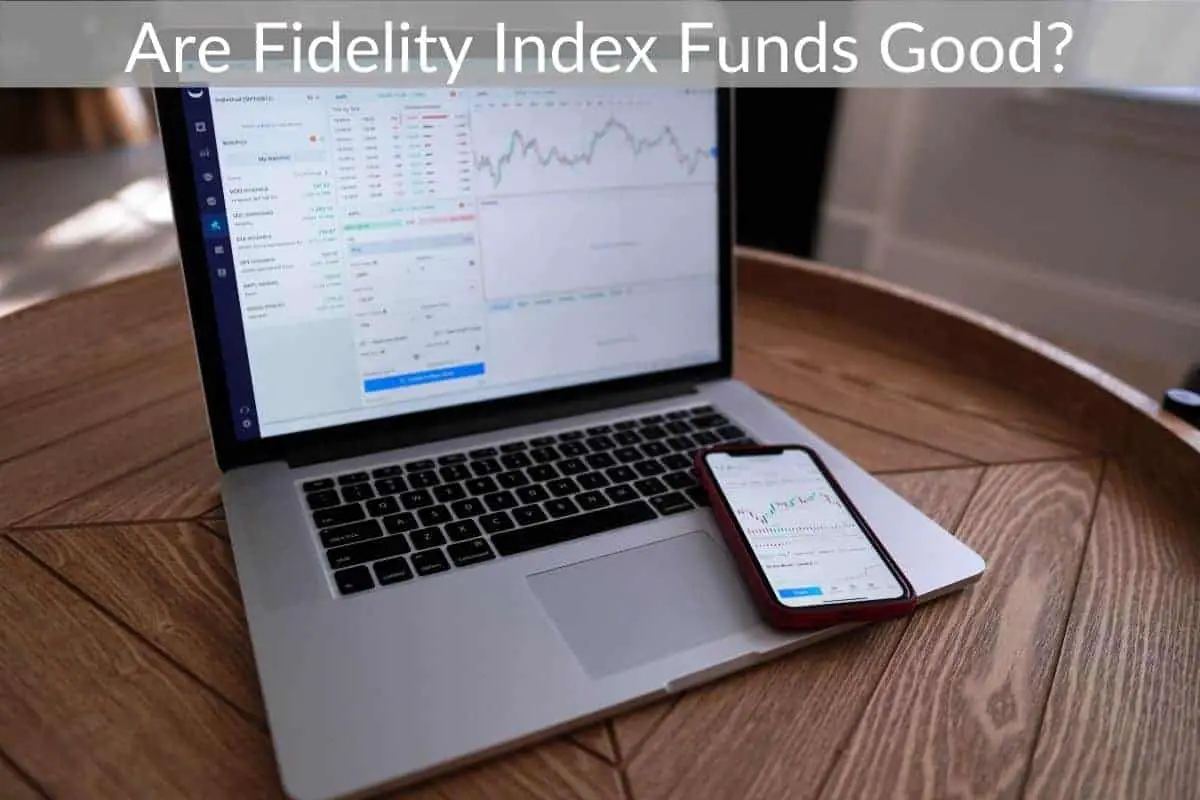Table of Contents
*This post may contain affiliate links. As an Amazon Associate we earn from qualifying purchases.
When it comes to shopping for index funds, you have a lot of options. However, Fidelity might be at the top of your list.
But are Fidelity index funds good?
Fidelity index fund expense ratios are one of the lowest you’ll find — even lower than Vanguard index funds, which were pioneers of the concept of index investing in 1976.
When it comes to index funds there often isn’t much difference between them so getting one with a cheaper expense ratio will allow you to have more money than an index fund with higher fees.
Additionally, Fidelity index funds have no minimums to be able to open an account or you can buy Fidelity index fund ETFs at most major brokerages.
In this article, I’m going to help you better understand the advantages (and disadvantages) of investing in Fidelity index funds and guide you on how to get started.
Before we discuss the value of investing in Fidelity index funds, I think it’s important to understand what index funds are. If you’re already familiar with index funds, feel free to skip this section!
What Are Index Funds Exactly?
Index funds are a type of asset that you can invest in through most major brokerages via ETFs or through most mutual fund companies. They’re made up of many different securities and are designed to capitalize on the returns of a specific index of the stock market itself, not a single stock.
Index funds are designed to track a certain stock index such as the S&P 500, the Dow, Russel 2000, etc. Each index fund is designed to match the returns of each index as closely as possible.
Index funds can be a good investment. Since they are made up of many different companies, one stock going down will not affect the entire fund as much.
Index funds are great for retirement or for investing into the stock market without needing to pick individual stocks.
They’re not a quick moneymaker for the same reason they’re not as volatile. Remember to always do your due diligence and research the index fund you’re interested in before purchase.
They can lose value like any security in the stock market but they should never go to zero either since you own many different companies with an index fund.
What About Fidelity Index Funds?
Warren Buffet says index funds can be a good investment because they take the risk of choosing the wrong stock and there aren’t all of the fees and expenses you incur from multiple trades when trying to buy many different stocks.
In this article I will focus primarily on equity funds.
Fidelity index funds are a great way to diversify your portfolio and include multiple sectors of the market without having to purchase a bunch of different stocks or try and rebalance them on a regular basis.
The index fund handles all of that (which is where the expense ratio goes).
When researching index funds, make sure to look at how the index fund is performing compared to the S&P 500 (another index). A good index fund will mirror the movement of the stock index that you are buying.
So if you buy an S&P 500 index fund then the returns should be almost identical to the returns you would see of the S&P 500.
Why Should I Invest in Fidelity Index Funds?
Fidelity Index Funds are a great low cost option for investors who choose to buy-and-hold stocks for a long time. Fidelity’s index funds are available in a wide variety of sectors.
So if you feel like the smaller stocks/companies will do better then you can buy an index fund that tracks the Russel 2000.
The market index funds with zero expense ratio were introduced to the market by Fidelity. They have low cost and high potential for growth.
If you’re looking to buy an index fund that follows US stock indexes, emerging markets, international markets, and bonds, you should take some time to look into Fidelity.
There are many to choose from so you can find the fund that perfectly suits your investment goals. Some of these even pay dividends!
Best Retirement Index Funds From Fidelity
When looking at the performance of an index fund, there are many aspects you want to consider.
When evaluating an index fund you should always carefully consider how much risk the index has (and whether you are comfortable with it), the expenses of the fund (especially important with index funds), and the average returns of the index over time (compare those with other indexes).
Some indexes perform better at times of economic growth while others perform better during flat or slightly down times. It’s important to either diversify which index funds you hold (what I do) or know when to expect certain index funds to underperform.
Here are some of the best performing index funds Fidelity has to offer:
1. Fidelity Blue Chip Growth
At least 80% of this fund is in blue-chip companies like Amazon, Microsoft, Facebook, Google, Nvidia, and Apple.
These companies usually have medium or large market capitalization. This fund is for long term growth.
2. Fidelity Intermediate Treasury Bond Index Fund
Usually at least 80% of this fund is invested in securities that are in the Bloomberg Barclays 5-10 year US Treasury Bond Index.
3. Fidelity OTC Portfolio
This fund will generally invest over 25% in technology: think Amazon, Apple, Facebook, Microsoft, and Google parent Alphabet.
4. Fidelity Nasdaq Composite Index
Specifically made to track the Nasdaq Composite Index, at least 80% of the funds are invested in common stocks in the Nasdaq.
These include Amazon, Tesla, Alphabet, Facebook, and Apple.
5. Fidelity Large Cap Growth Index Fund
This fund focuses on large-cap growth stocks, with at least 80% in securities that are mentioned in the Russell 1000 Growth Index.
These include Apple, Facebook, Tesla, Alphabet, and Amazon.
6. Fidelity 500 Index Fund
The Fidelity 500 Index Fund aims to mimic the total return from US common stocks. 80% or more of the assets are invested in stocks that are in the S&P 500.
This includes Alphabet, Berkshire Hathaway, Microsoft, Amazon, Apple, and Facebook.
7. Fidelity Total Market Index Fund
This fund is designed to provide returns that mimic the total return of domestic capital.
At least 80% of this fund is invested in securities that are in the Dow Jones US Total Market Index.
Some companies in this fund are Amazon, Facebook, Tesla, Apple, Alphabet, and Microsoft.
7. Fidelity Intermediate Treasury Bond Index Fund
Usually at least 80% of this fund is invested in securities that are in the Bloomberg Barclays 5-10 year US Treasury Bond Index.
8. Fidelity Long-Term Treasury Bond Index Fund
Long term investors find a bonds option reliable because bonds are relatively safe.The US Treasury issues bonds. At least 80% of this fund is in bonds that are in the Bloomberg Barclays US Long Treasury Index.
Final Thoughts
Are Fidelity index funds good? I’d say so!
With low expense ratios and a wide selection of index funds for retirement to choose from, Fidelity is one of the best sources for these types of funds out there.
There are many good options and many good indexes that you can buy funds for so be sure and do your research. It’s also a good idea to contact a licensed professional if you are a beginner or aren’t sure what is best in your situation.

